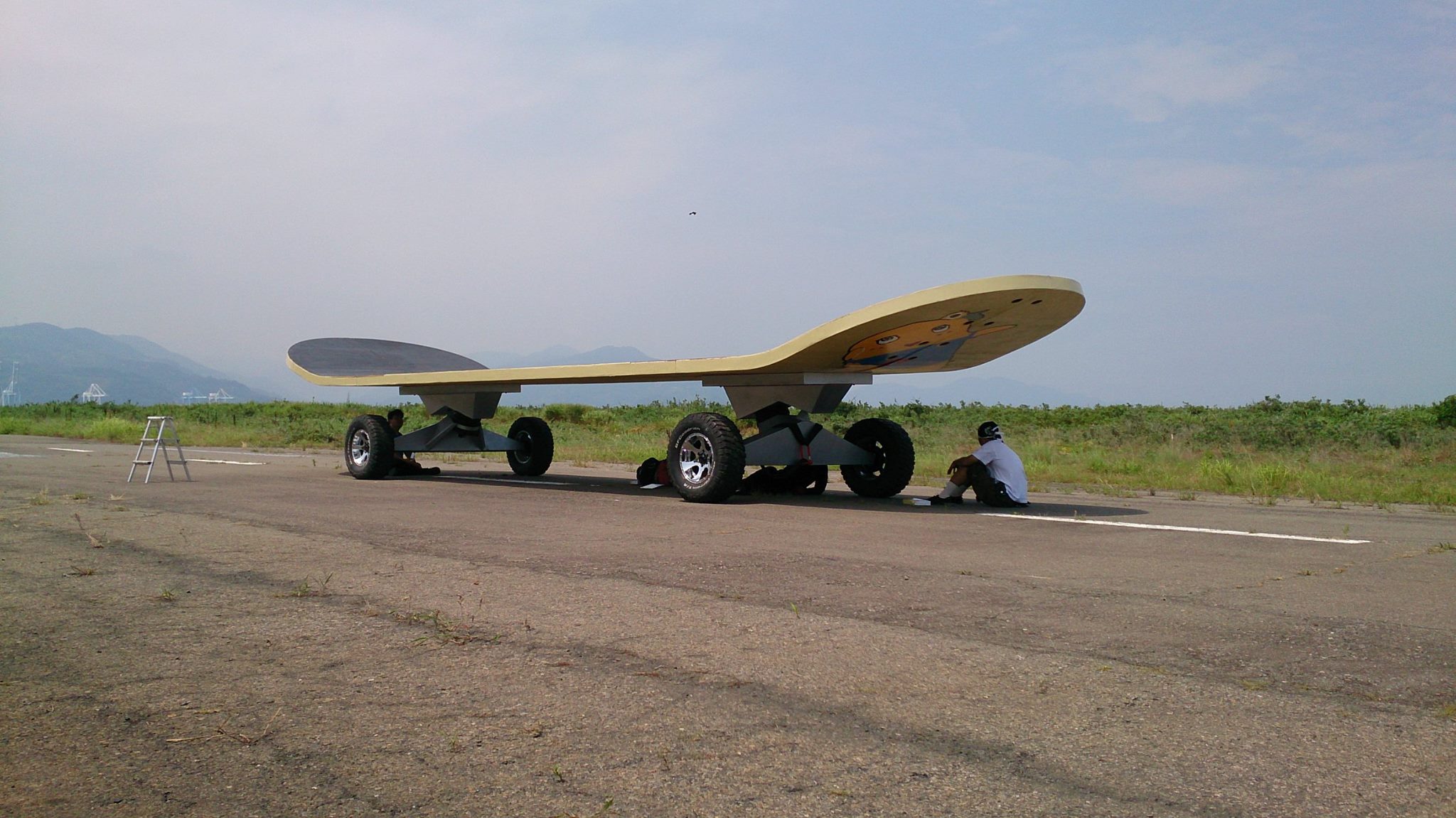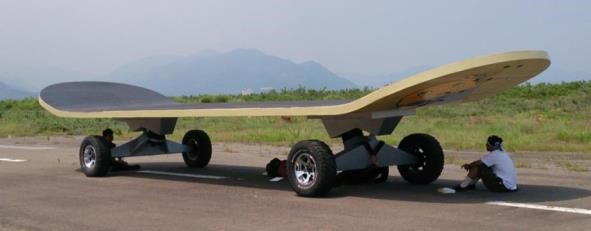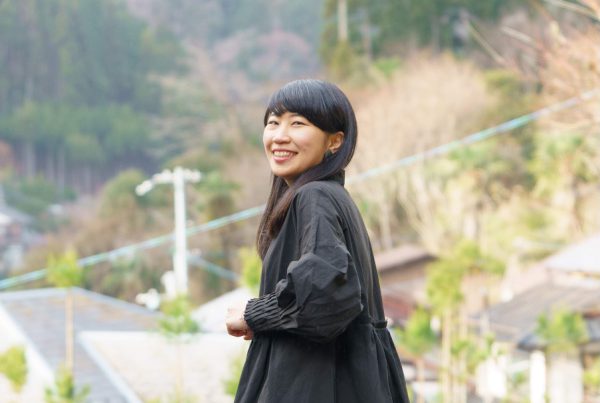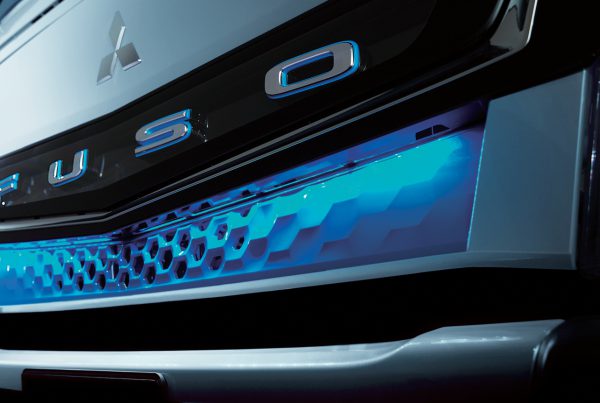Entrepreneurial Mindset for Success : An interview with 14Lab’s CEO, Satosi Isigro
After ten years spent at Toyota Motor Corporation, Satosi Isigro decided to become independent and work as a freelance design engineer, creating concepts and developing new products in various fields such as automobiles, medical care, furniture, design, and academic research.
Satosi Isigro teaches Design Thinking to MBA students, works in multiple countries, and has a lot of experience in consulting and design projects with people from different cultures and countries. In an interview with the Nagaoka Review team, he spoke about his entrepreneurial experience and the future of entrepreneurship in Japan.
Satosi Isigro
Professor, entrepreneur and 14 Lab’s CEO
NR: What was your key driving force to become an entrepreneur? Can you tell us a bit about yourself?
SI: Passion and determination. Well, when you think about “entrepreneurship,” it is common to jump straight to success, power, and profitability. Still, to my mind, entrepreneurship is about risk, uncertainty, and intrinsic rather than extrinsic motivations. An entrepreneur is one who creates a new business in the face of danger and anticipation to achieve profit and growth by identifying opportunities and assembling the necessary resources to capitalize on those opportunities. Entrepreneurs usually start with nothing more than an idea—often a simple one—and then organize the required resources to transform that idea into a sustainable business.
Ever since I was a child, I have always wondered why the products and services I see are not like this, and imagine making it better. After a 10-year career as a design engineer at Toyota Motor Corporation, where I worked after graduation, driven by determination and passion, I thought about starting my own business in product design or fields other than cars.
NR: As an entrepreneur, what is it that motivates and drives you?
SI: Imperfection. Due to globalization, improved transport, and communications, today’s world has become safer and convenient. However, there are still so many things that could be improved.
Today, our modern values are shaped by the realities that we have experienced, and I feel that in the pursuit of logical correctness, many joys have been lost. So, through my entrepreneurial activity, I want to contribute to the world by improving and innovating such things. Also, passing on knowledge and experience gained during their career to the younger generation. Because the most common incentive for an invented product or service is to solve a problem faced by an entrepreneur.
NR: What would you say are the key elements for starting and running a successful business?
SI: Firstly, I think it’s about what kind of knowledge and experience you have before starting your business. In my entrepreneur experience, I see far too many who seem to be driven by all the wrong reasons. Everyone seems to think of starting a business as a goal. If you are going to start a business and become the manager, it would be contradictory to deny the existing companies. If an organization has already done what you want to do, joining it is a shorter way to achieve your goal than starting a new business from scratch. If you have acquired exceptional skills or knowledge while you are young or trying to do something that doesn’t exist in the world, or if there is nothing that moves you in any way, I think it would be a good thing for society as a whole to work for a company as a place to train.
Nowadays, I am concerned that many local governments and educational institutions blindly encourage young people to start their businesses. It is free to enable them to do so, but it is irresponsible not to teach them about failure and create an environment where they can try repeatedly. In other words, nothing happens if you make a product or service. It would help if you had the infrastructure to operate them.
”Within 5- 7 years, I would hope that business schools will become the hub for enterprise and entrepreneurship in Japan, I would like to see us evolve.
Satosi Isigro14Lab's CEO
NR: What are the qualities of a successful entrepreneur?
SI: It depends on your definition of success, but I believe that the joy that truly satisfies is contributing to society, attitude, and self-assessment.
Evaluating strengths and weaknesses is an essential part of becoming an entrepreneur. Self-assessment helps you maximize your strong points and strengthen your weaker ones.
Attitude is the way of viewing or thinking about something that affects how you feel about it. Entrepreneurs tend to be people with positive attitudes. Instead of seeing a situation as a problem, they look at it as an opportunity, which helps them find solutions more easily.
Simon Sinek, a British-American author, and inspirational speaker, once said, “Working hard for something we don’t care about is called stress. Working hard for something we love is called passion”. In this sense, I think entrepreneurship is not about extrinsic motivations, such as getting rich, having power, and fulfilling parent dreams. It is about hard work, courage, passion, and creativity. Willingness to take risks despite possible losses, refusing to quit despite obstacles, desire to learn, the ability to see problems as opportunities and to adapt to new situations. And last but not least, patience to recognize that most goals are not reached overnight.
NR: What is the Japanese small business model?
SI: This question is so vague that it’s hard to talk about it. Small firms have been considered an essential element of Japan’s industrial structure since the turn of the century. Many of those that emerged around the 1950s were honest businesses that created tangibility- the driving force behind Japan’s post-war progress. Today, these businesses have become obsolete due to globalization, as they are incorporated into larger business structures in search of stability and competitiveness.
In Japan, small businesses play a multidimensional role, but it is difficult to discuss their value. Small businesses are an essential source of job creation, as they are responsible for creating the bulk of jobs and creating jobs in a work environment with more significant concerns for people’s needs.
NR: What do you hope to see happen shortly for small businesses in Japan?
SI: In Japan, it is said that the ratio of people working for small and medium-sized companies to the total working population is remarkably high. It may sound paradoxical, but I think it is better for all companies except those with technology and value that do not need to be subjugated to the subcontractor structure to get together and become a large organization to build up their corporate strength. This will give them more room to do what they want to do and contribute to the innovation process.
NR: You have left the corporate world to create your own path. Can you tell us more about your 14Lab project? When did you decide to establish it?
SI: It was 2012. After graduating from university, I joined Toyota Motor Corporation and engaged in platform development, design, and strategy development. Passionate about design, engineering, and automobiles, I have planned a structural philosophy that embodies “better cars,” a guide for building all platforms that optimize performance and costs.
After more than ten years in the corporate world, I decided to become independent and work as a freelance design engineer, creating concepts and developing new products in various fields such as automobiles, medical care, furniture, design, and academic research.
14Lab Project provides a wide array of consulting services and designed products, ranging from engineering design of cars, gadgets, and furniture to project planning and engineering consulting. Our mission is to provide high-quality services and create unique and tangible products that bring value and satisfaction to the people. During my activity as a CEO of the 14 Lab, I’ve been involved in a lot of work, including working on a business using satellites, building the world’s largest skateboard, and designing various designs and product packaging for electric cars, personal mobility, robots, medical devices, and furniture. I also consult companies and currently teach Design Thinking at GLOBIS University in Tokyo and Nagoya University
Image of products designed by 14Lab via 14Lab
NR: Speaking about inspiration, who/what inspires you?
SI: It’s everything around me. People, the fact that every day is a new day, the possibility of change, and how to seize that inspire me. I think that there is an opportunity every day, especially when you’re building a business. You never know what will come, and I believe those things start with a combination of proving something is possible, telling the right people about it, and then picking up the torch and carrying on from there. The right way to think about it is by planting the seeds of what is possible and enabling many people to go after it.
I am inspired by dedicated people who contribute to their communities. Elon Musk, James Dyson, and Simon Sinek can be a relevant example today. I think they get people to think bigger and shoot for these outlandish feats that are good for humanity.
NR: How do you generate new ideas?
SI: How you know well, an open mind is a valuable resource, so I learn incessantly, even sacrificing time to sleep. I like to analyze people’s behavior and observe the structure of objects and products around me. I don’t leave questions unanswered; I investigate and think them through thoroughly until I understand them. Such a humble accumulation of daily knowledge and experience matures in me like a bouillabaisse. To those who don’t know about such daily efforts, it may seem as if an outlandish idea came out of nowhere, but it is very logical and inevitable in my mind.
” The world is full of ideas – everyone has got an idea at some time – but not everyone knows how to act upon them. Business schools can help in that respect. I wouldn’t say I learned which are good ideas – but I certainly learned which are not.”
Gemma Clarke
Design Thinking and UX classes. Images courtesy of Satosi Isigro
NR: What helps you build confidence?
SI: Firstly, Self-confidence. I believe in my abilities, and I’m not scared to explore unchartered territories, take the risk and take difficult decisions. It is easy to become demoralized, frustrated, and resentful if you lack self-confidence.
Secondly, my achievements, acquired knowledge, passion for manufacturing, and most importantly, my goal of making people happy gives me confidence.
NR: Do you think feedback is essential? What were the changes you made to the 14Lab after the initial customer feedback?
SI: It is essential to get feedback. But it is also helpful to have a mentor who can give you an honest opinion. Being at the beginning of my career, I learned a lot from my mentors. Most things were just the business basics essential for my future career.
At 14Lab are plenty of ways we leveraged customer feedback and profited from it. Firstly, the client’s needs and expectations evolve with time, and their feedback helped us adjust our business to fit their needs more accurately. Their opinions helped us ensure that the end product will meet their expectations, solve their problems and fulfill their needs.
Secondly, Customer feedback helped us to create the best customer experience and to improve customer retention. Some of our customers have even become our friends and continue to promote our products.
NR: Could you offer some advice to young people in Japan who are interested in starting their own businesses?
SI: First of all, think carefully about why you want to start a business, and don’t let anyone dampen your willpower to aspire. As strong as a dream may be, it will stay a dream unless you work to make it a reality. Study hard and think about your future idea as something you’re always learning more about it. Read up on your industry, follow publications and websites, attend the seminars and ask questions, accept criticism, but use all feedback to your advantage.
So many people are scared about failure, but “Failure” is critical to innovation entrepreneurs. I want people to challenge themselves and experience failure while young; you cannot learn from failure unless you take it seriously. Remember that this is far more important than whether or not you can do what you are trying to do, and I hope you will work on what you are passionate about to realize a bright future.
Connect with Satosi Isigro via LinkedIn”You may not have an idea today but get as many qualifications as possible and try to work as hard in your career as possible because it will help in the future.
Satosi Isigro14Lab's CEO























